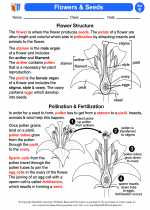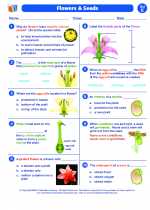Flowers and seeds -> cooperation
Cooperation in Science
Cooperation is the process of working together to achieve a common goal. In the field of science, cooperation is essential for making progress and conducting successful experiments and research. It involves individuals or groups collaborating and sharing their knowledge, resources, and skills to solve complex problems and make new discoveries.
Importance of Cooperation in Science
Cooperation is crucial in science for several reasons:
- Sharing of knowledge: Scientists share their findings and ideas with others, which helps in advancing the collective understanding of various scientific phenomena.
- Combining expertise: Different scientists bring diverse skills and expertise to the table, and by working together, they can tackle complex challenges more effectively.
- Resource pooling: Cooperation allows for the pooling of resources such as laboratory equipment, funding, and research materials, leading to more comprehensive and impactful studies.
- Validation of results: Collaborative efforts enable scientists to validate their findings through peer review and replication of experiments, ensuring the reliability of scientific discoveries.
Examples of Cooperation in Scientific Research
Cooperation is evident in various scientific endeavors, including:
- International collaborations on space exploration missions, where multiple countries contribute resources and expertise to explore the universe.
- Joint research projects between universities and industry partners to develop new technologies and innovations.
- Collaborative efforts among medical researchers to find cures for diseases through sharing data and conducting clinical trials.
Study Guide
If you're studying cooperation in science, here are some key points to focus on:
- Define cooperation in the context of scientific research.
- Explain the importance of cooperation in advancing scientific knowledge and discoveries.
- Discuss examples of successful scientific collaborations and their impact on various fields.
- Explore how cooperation fosters innovation and problem-solving within the scientific community.
- Analyze the benefits of interdisciplinary cooperation in addressing complex scientific challenges.
Understanding the significance of cooperation in science can help you appreciate the interconnected nature of scientific progress and the power of collective effort in driving meaningful advancements.
[Cooperation] Related Worksheets and Study Guides:
.◂Science Worksheets and Study Guides Fifth Grade. Flowers and seeds

 Activity Lesson
Activity Lesson
 Worksheet/Answer key
Worksheet/Answer key
 Worksheet/Answer key
Worksheet/Answer key
 Worksheet/Answer key
Worksheet/Answer key
 Worksheet/Answer key
Worksheet/Answer key
 Vocabulary/Answer key
Vocabulary/Answer key
 Vocabulary/Answer key
Vocabulary/Answer key
